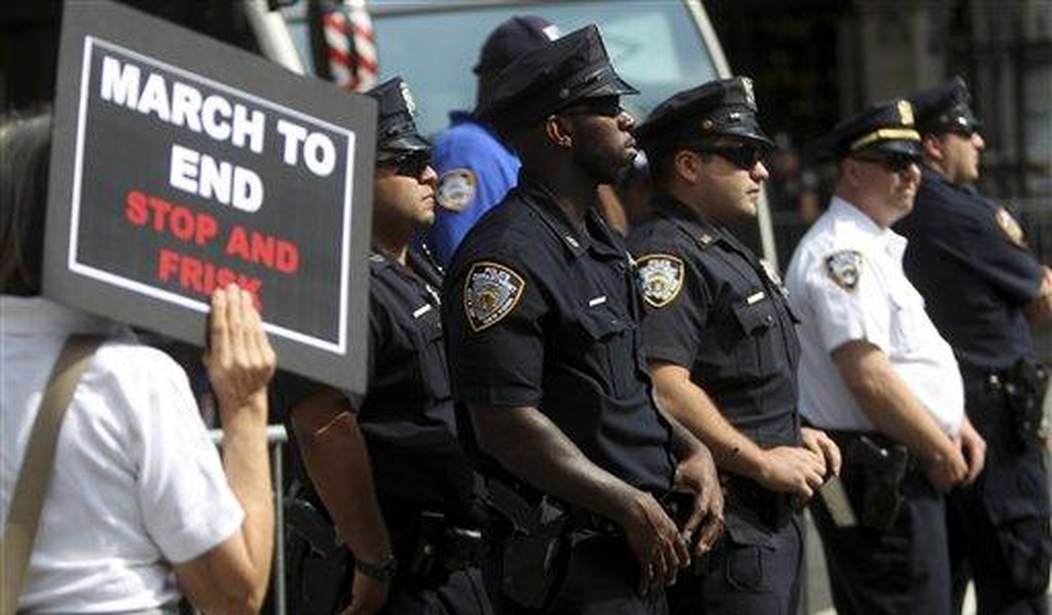"Letting adolescents have their way." That's one way to describe two public policies, advocated vociferously by woke liberals, opposed surely by most. One primarily affects young men, the other primarily young women.
The policy primarily affecting young men can be summed up as "de-policing." It's a direct response to -- one might say a total surrender to -- the Black Lives Matter group that sparked protests after the death of one police suspect in Ferguson, Missouri, in August 2014 and sparked many more after the death of another in Minneapolis, Minnesota, in May 2020.
It has many versions. "Defunding the police" was an initial Black Lives Matter demand. Democrats running city governments from Los Angeles to Minneapolis to New York acquiesced to it. Democratic political consultants seem to have convinced all but the most impenetrable-minded clients that defunding is political poison. The same mayors and council members who decreed defunding a year ago are now scampering to reverse course.
But they're not adding police officers where they're needed. One of the great successes of public policy in the last half-century was the policing reform initiated by Rudy Giuliani in New York and adopted by many other mayors and police commissioners starting in the 1990s. They include constant maintenance of public order, intense and respectful patrolling of high-crime sites and friendly interaction with law-abiding neighbors.
That means frequent interactions with Black adolescents. It is well known that an enormous proportion of crimes are committed by men age 15 to 25, and it is an unhappy fact of life, often avoided in polite conversation, that Black people are about seven to eight times more likely to commit crimes than others.
Recommended
One effective technique of post-Giuliani policing, inevitably affecting young Black men more than others, is stop and frisk. It operated as an effective form of gun control in New York, which imposed three-year minimum sentences for illegal possession of a gun. As a consequence of the policy, young men who might have opportunistically robbed a passerby or who might have shot into a crowd of rivals simply stopped carrying.
But stop and frisk, for understandable reasons, rankled a lot of young Black men, including the son of successful 2013 New York mayoral candidate Bill de Blasio. De Blasio's election and Black Lives Matter put paid to stop and frisk. Fearing Black Lives Matter protests, police officers have retreated to the precinct house or the donut shop. Record numbers have just retired.
Homicides have skyrocketed since the May 2020 Minneapolis incident. Criminologists have been puzzled as to why -- maybe it's the lockdowns. Maybe the weather was unusual, whatever. Most have avoided the obvious answer: The unwillingness to police adolescent male behavior has removed constraints that prevented young men from committing crimes and killing each other. Activists' hostility toward police has come at the cost of a couple thousand Black lives.
The policy primarily affecting young women is the move, in the name of observing transgender rights, of enabling teenage girls to undergo irreversible surgery to become transgender men.
The numbers once again tell the story. The number of young women insisting they're really men has skyrocketed in recent years, leading some to wonder whether there has been some vast change in human behavior. Wiser folk have reflected that adolescent girls are enormously susceptible to trends, the more shocking to their elders, the better. Once upon a time, the trend was anorexia; now, it is sexual dysphoria.
It is taken for granted in some liberal quarters, and large parts of corporate America, that showing respect for transgender adults requires acquiescing to the demands of adolescents. But as Abigail Shrier shows in her book "Irreversible Damage: The Transgender Craze Seducing Our Daughters," many young women who have transitioned as adolescents have regrets as adults. And alas, many surgeries and drug treatments are not entirely reversible.
Again, we see a society, and particularly its educated elite, lacking the will to impose constraints on the behavior of adolescents. The wisdom of the ages teaches otherwise. Children, adolescents, and adults all need constraints of various kinds -- guardrails, in the words of a famous Wall Street Journal editorial. Everyone likes to have a good time, but most people come to recognize that happiness and satisfaction come not so much from the enjoyment of pleasure as from the performance of duty. A life without constraints is not a dream but a nightmare. Case in point: Jeffrey Epstein.
The tragic results of Black Lives Matter-inspired depolicing and of adolescent gender transitioning -- dead and broken bodies -- teach the old lesson that adolescents, like children and adults, need constraints. A sensible society provides them.
Michael Barone is a senior political analyst for the Washington Examiner, resident fellow at the American Enterprise Institute and longtime co-author of The Almanac of American Politics.

























Join the conversation as a VIP Member